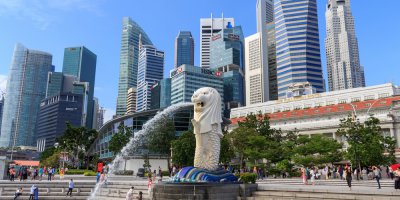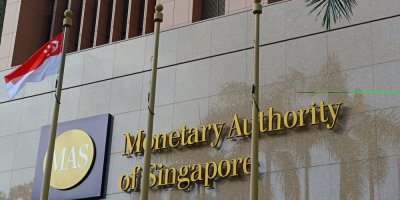
Singapore’s public expects a lot more innovation in the financial industry. Source: Shutterstock
How will Singapore’s new express sandbox help fintech firms?
FINTECH companies often operate in a space that lacks clear regulations and usually combines two or more segments of commerce.
The ambiguity, however, troubles some founders and is believed to limit innovation in the fintech community. In order to overcome this, many governments started “sandboxes” that allow companies to start and operate without worrying about breaking laws they don’t know about.
This fosters innovation and enables regulators to formulate new laws and guidelines on a case by case basis, depending on how things play out.
Take crowdfunding or peer to peer (P2P) lending, for example. On one hand, it’s about investing money by providing quick loans online — while on the other, it involves assessing and managing risks associated with companies that are allowed to accept investments on the P2P lending platform.
In many countries, such as Australia, Argentina, Canada (Ontario), New Zealand, United Kingdom, France, Germany, Italy, and USA P2P lending is heavily regulated. In Japan and Israel, it is banned.
In Singapore, the government understands the importance of such loans to SMEs and high growth startups, and although highly regulated, P2P lending is legal and quite safe. Regulations in this regard were in made clear way back in 2016.
Singapore’s fintech sandboxes
The Monetary Authority of Singapore (MAS) has been a pioneer and a great supporter of fintech innovations.
It’s helped promote application programming interfaces (APIs) in the country’s banking sector and has facilitated several public and private partnerships to help build a smarter, better fintech ecosystem in the recent past.
The MAS first launched its fintech sandbox in 2016 — but it requires fintech companies to make an application and go through an approval process where the value proposition and proposed business model are extensively reviewed.
Nevertheless, it was a huge success with fintech companies from all over the world as the MAS proved to be quick, efficient, and proactive when it came to supporting innovations in this space.
“We are heartened that the FinTech Regulatory Sandbox has been well received by the industry. We have engaged with more than 150 FinTech players since the Sandbox was launched, and a number of firms have experimented in the sandbox,” said MAS Chief Fintech Office Sopnendu Mohanty.
Now, in a bid to fast-track innovation, the regulator wants to do away with the hurdles of obtaining permission to participate in the sandbox. Hence, it’s launching a new “express sandbox”.
The express sandbox is suitable for activities where the risks are generally low or well understood, and could be reasonably contained within a specific pre-defined sandbox.
“To facilitate quicker experimentation and faster introduction of innovative financial services to the market, we are now offering the option of Sandbox Express,” explained Mohanty.
In the first phase, pre-defined sandboxes for insurance broking, recognized market operators, and remittance businesses will be launched.
The MAS envisions that each pre-defined sandbox will have its boundaries, expectations, and regulatory reliefs pre-determined.
The applicant must declare that it is able to fully comply with all expectations of the pre-defined sandbox that it has applied for, which includes providing clear disclosure and obtaining an acknowledgment from the user before the user can be on-boarded as a customer.
The Singapore regulator has said that it will assess applications based only on two criteria:
- Technological innovativeness of the financial service, and
- Fitness and propriety of the applicant’s key stakeholders.
The idea is to fast-track the applications and provide approval decisions within 21 days.
An approved pre-defined sandbox entity will be required to submit periodic progress reports to MAS as well as ensure that the pre-defined sandbox expectations are adhered to.
Like many of its industry-leading ideas, the MAS has provided a draft of the guidelines specified in the proposed new express sandbox and will be accepting comments from the public till mid-December.
If things go to plan, the MAS should start accepting applications for the new sandbox as early as January next year.
READ MORE
- Safer Automation: How Sophic and Firmus Succeeded in Malaysia with MDEC’s Support
- Privilege granted, not gained: Intelligent authorization for enhanced infrastructure productivity
- Low-Code produces the Proof-of-Possibilities
- New Wearables Enable Staff to Work Faster and Safer
- Experts weigh in on Oracle’s departure from adland






